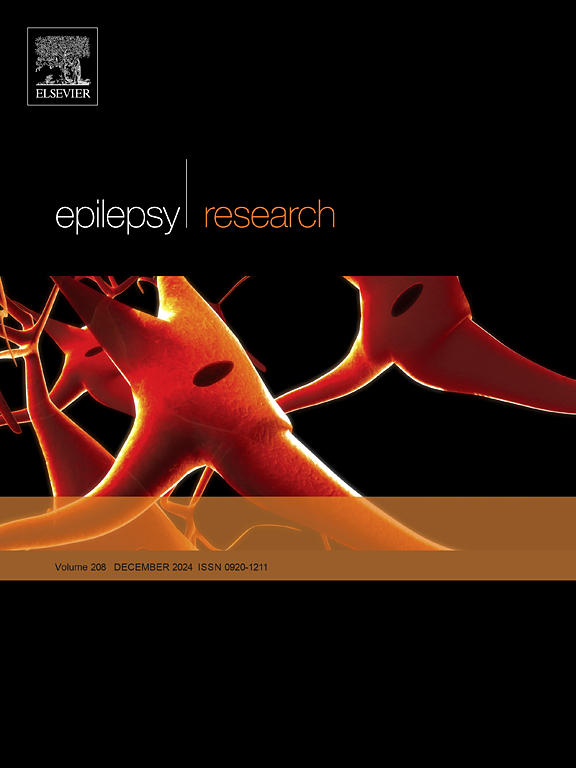癫痫的医疗费用:来自所有付款人索赔数据的证据
IF 2
4区 医学
Q3 CLINICAL NEUROLOGY
引用次数: 0
摘要
目的利用大型的、基于州的全付款人索赔数据库,提供与癫痫相关的医疗费用的最新估计。方法:我们使用2016-2019年科罗拉多州、马萨诸塞州和弗吉尼亚州的所有付款人索赔数据进行了一项回顾性队列研究,包括参加医疗保险、医疗补助计划以及个人和小团体商业计划的个人。使用有效的基于索赔的算法确定癫痫患者,并根据年龄和性别与非癫痫对照进行匹配。使用广义线性回归并调整年龄、性别、保险状况和合并症对两组的医疗保健使用和费用进行比较。该研究包括科罗拉多州150,808名成人癫痫患者,弗吉尼亚州122,222名,马萨诸塞州118,707名。州一级估计成人癫痫患者的年度费用在28,000美元至34,000美元之间(2021年 美国而匹配控制的成本在2900美元到6300美元之间。在所有类型的护理中,成人癫痫患者的费用高于对照组。调整后的分析显示,癫痫造成的费用根据所包括的协变量的不同,在1.2万美元至3.1万美元之间。我们的研究提供了美国不同州最新的、全面的癫痫费用估算,证明了所有付款人索赔数据在产生针对特定州和总体癫痫负担估算以指导干预措施方面的效用。这项研究证实,癫痫给卫生保健系统造成了巨大的经济负担,其费用高于以前的估计。本文章由计算机程序翻译,如有差异,请以英文原文为准。
The health care costs of epilepsy: Evidence from all-payer claims data
Objective
To provide updated estimates of the healthcare costs associated with epilepsy using large, state-based all-payer claims databases.
Methods
We conducted a retrospective cohort study using all-payer claims data from Colorado, Massachusetts, and Virginia for 2016–2019, including individuals enrolled in Medicare, Medicaid, and individual and small-group commercial plans. Individuals with epilepsy were identified using a validated claims-based algorithm and matched with non-epilepsy controls based on age and sex. The two groups' healthcare use and costs were compared using generalized linear regressions and adjusting for age, sex, insurance status, and comorbidities.
Results
The study included 150,808 adults with epilepsy in Colorado, 122,222 in Virginia, and 118,707 in Massachusetts. State-level estimates of annual costs for adults with epilepsy were between $28,000 and $34,000 (2021 U.S. dollars), whereas costs for matched controls were between $2900 and $6300. Adults with epilepsy incurred higher costs than matched controls across all types of care. Adjusted analyses revealed that costs attributable to epilepsy ranged from $12,000 to $31,000, depending on the covariates included.
Conclusion
Our study provides updated and comprehensive cost estimates for epilepsy from diverse U.S. states, demonstrating the utility of all-payer claims data to generate state-specific and aggregate estimates of epilepsy burden to guide interventions. This study confirms that epilepsy imposes a substantial economic burden on the healthcare system, with costs higher than previous estimates.
求助全文
通过发布文献求助,成功后即可免费获取论文全文。
去求助
来源期刊

Epilepsy Research
医学-临床神经学
CiteScore
0.10
自引率
4.50%
发文量
143
审稿时长
62 days
期刊介绍:
Epilepsy Research provides for publication of high quality articles in both basic and clinical epilepsy research, with a special emphasis on translational research that ultimately relates to epilepsy as a human condition. The journal is intended to provide a forum for reporting the best and most rigorous epilepsy research from all disciplines ranging from biophysics and molecular biology to epidemiological and psychosocial research. As such the journal will publish original papers relevant to epilepsy from any scientific discipline and also studies of a multidisciplinary nature. Clinical and experimental research papers adopting fresh conceptual approaches to the study of epilepsy and its treatment are encouraged. The overriding criteria for publication are novelty, significant clinical or experimental relevance, and interest to a multidisciplinary audience in the broad arena of epilepsy. Review articles focused on any topic of epilepsy research will also be considered, but only if they present an exceptionally clear synthesis of current knowledge and future directions of a research area, based on a critical assessment of the available data or on hypotheses that are likely to stimulate more critical thinking and further advances in an area of epilepsy research.
 求助内容:
求助内容: 应助结果提醒方式:
应助结果提醒方式:


